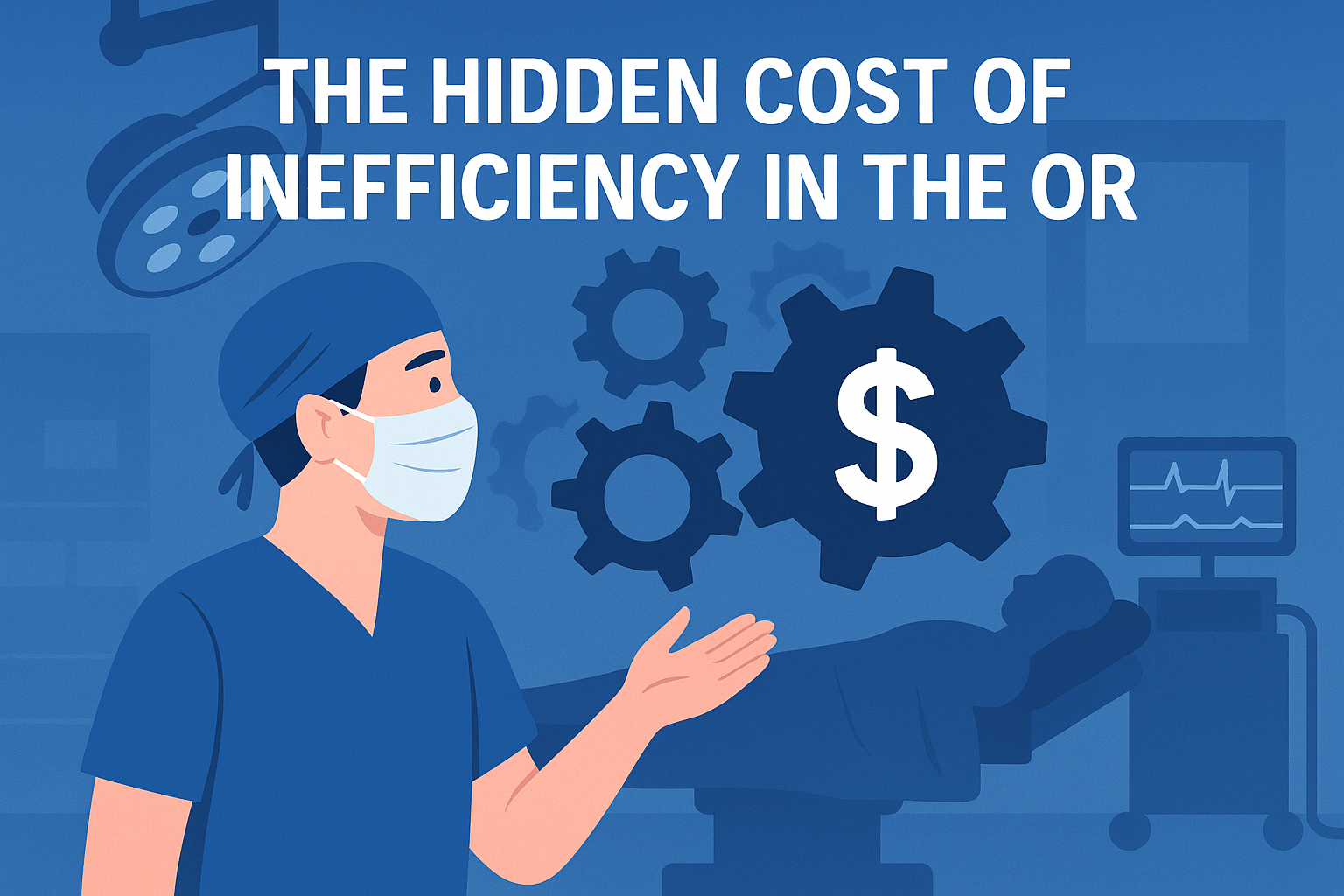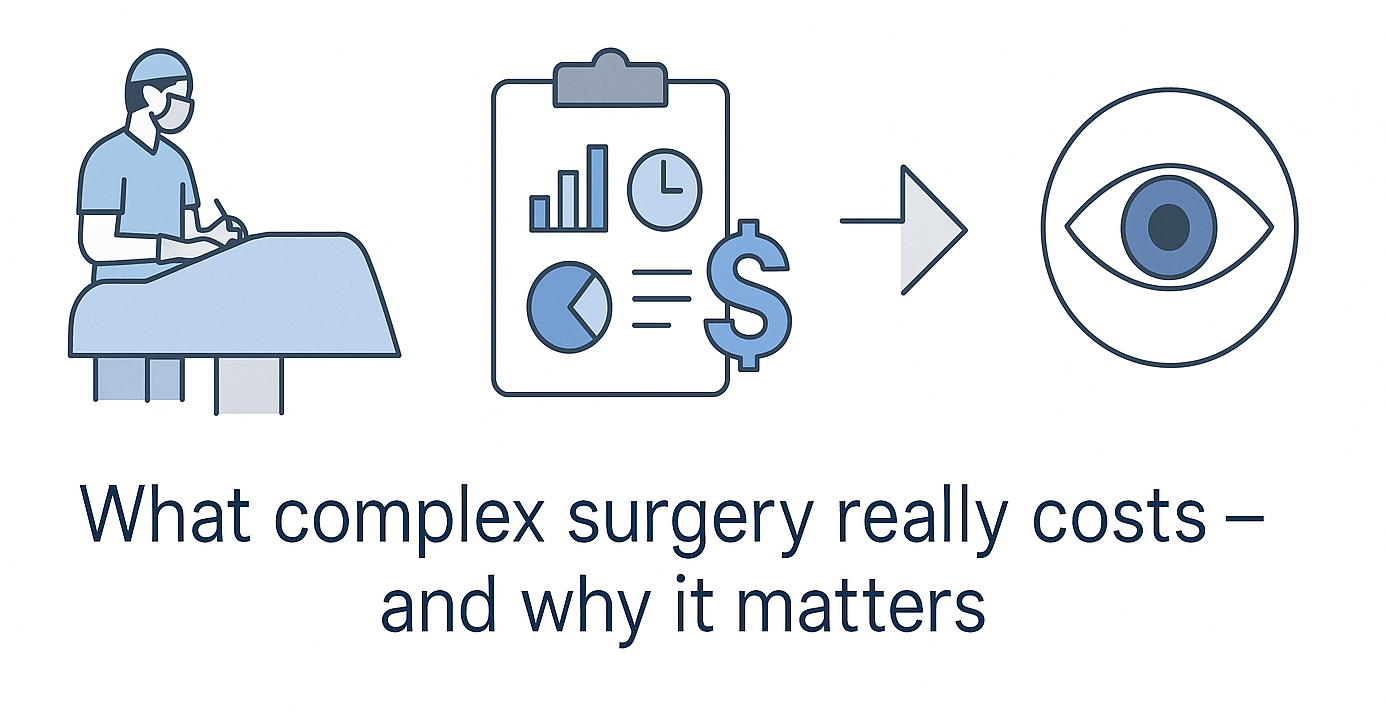
A Clearer Path Forward: Improving How We Educate Patients
The Context
Throughout residency, one of the patterns I noticed again and again was how much information patients were expected to retain after an office visit. Ophthalmology appointments, as do all other medical specialties, can involve multiple nuanced diagnoses, multi-step treatment plans, and careful follow-up timelines. Yet at the end of the encounter, most patients walked out with only a verbal explanation, and nothing to refer back to. This was most evident at the VA, where our electronic medical software had no option to provide patient information. I often found myself sketching out personalized instructions on scratch paper or typing short summaries into Microsoft Word and then printing it just so my patients had something tangible to reference at home. It was clear that patients valued this, but creating these summaries manually was time consuming, lacked standardization, and very inefficient.

The rising trend in academic ophthalmology urgent care
When dogma doesn’t match data
At one major academic medical center, the long-held belief by the ophthalmology department leadership was that ophthalmology call volume had stayed constant. While the residents complained that the workload “felt heavier,” nobody had been able to examine the numbers. That’s where EyeQ stepped in. By structuring and analyzing years of emergency department and consult data, we were able to answer a question that had lingered for years: was the call truly heavier, or did it just feel that way? When the numbers were finally revealed, the long-standing dogma didn’t hold up.
What the data showed
Over a five-year period, ophthalmology emergency room consults increased at an average rate of 15% per year, while total ER visits rose just 3%. Put simply, ophthalmology consults grew five times faster than the emergency department overall. The growth was coming from two trends, 1) an increase in the sheer number of eye complaints showing up in the emergency room, and 2) an increased rate of emergency room doctors consulting ophthalmologists – even if the number of eye complaints hadn’t increased. Overall, the increased on-call burden wasn’t just perception, it was measurable…and accelerating.

Small Practice, Smart Solutions
Insight in Action: Custom Solutions for Real Practice Pain Points
Not every project has to be a massive, enterprise-level overhaul. At EyeQ, some of the most rewarding work we do happens in small, independent practices. This blog highlights how a few simple, but smart, systems transformed day-to-day operations for a private dermatology office.
Automating Checkout with a Custom Excel Tool
In this dermatology practice, front desk staff were tasked with calculating what patients owed at checkout. But with insurance complexities, deductibles, copays, procedural rates, multiple surgical reduction rules, and cosmetic add-ons, it wasn’t simple math. The result? Errors in more than 75% of transactions, confused patients, and stressed-out staff.

The Hidden Cost of Inefficiency in the OR
The Quest for Surgical Efficiency
The operating room is the engine of any surgical department. When it runs well, everyone benefits: patients, physicians, staff…and so do the center’s finances. But when inefficiencies go unchecked, health systems lose time, money, and capacity without even realizing it. At EyeQ, we hope to shine a light on where those losses occur and how to fix them.
Take corneal transplants, for example. In our previous study of endothelial keratoplasty, a type of corneal transplant, we found that using "preloaded" cornea grafts (prepared by eye banks instead of by the surgeon in the operating room) shaved significant time off the procedure. Even though preloaded grafts carry a higher upfront price for the surgery center, the time saved was more valuable. And some payers reimburse for that expense, so the preloaded grafts offered a win-win for the surgery center.

What complex surgery really costs - and why it matters
When complex surgeries lose money… and no one notices
At a leading academic eye center, we asked a simple question: How much does surgery really cost? Not based on guesswork, RVUs, or reimbursements – but on real-time staff involvement, room usage, and material costs. This was harder to do than you might think. Most health systems do not have a great way of calculating costs, even from a resource as expensive and important as the operating room (OR).
In order to answer the question, we pioneered a string of studies using Time-Driven Activity-Based Costing (TDABC). In these studies, we uncovered a consistent pattern – one that many surgeons understand but had yet to quantify: the more complex the surgery, the greater the hidden financial loss.

